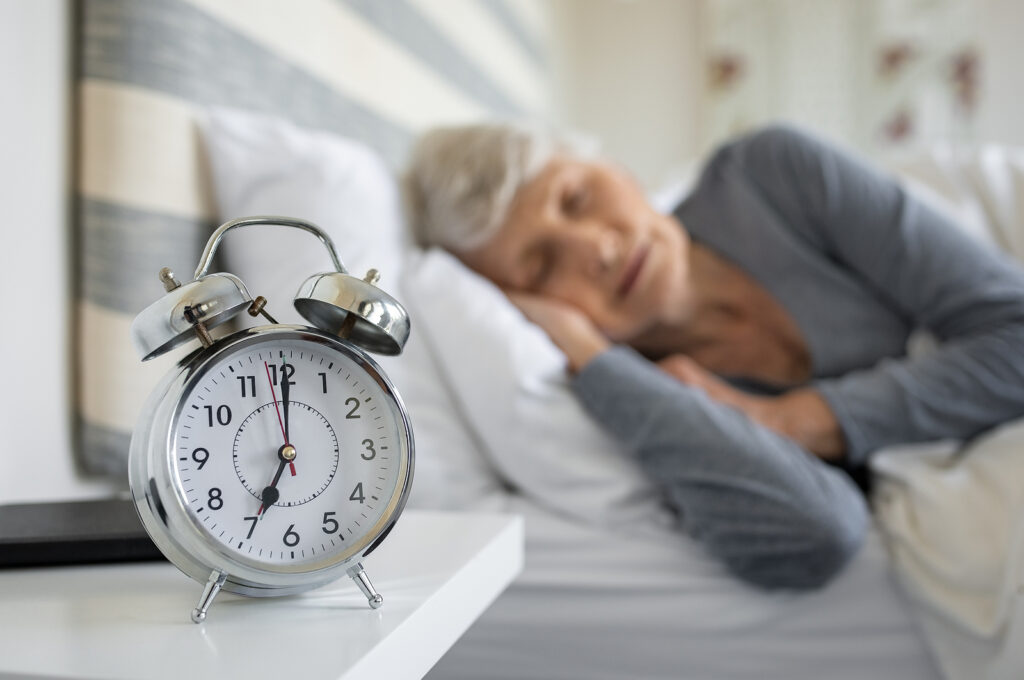On your quest to improve health and wellness in your golden years, it is vital to address the quantity and quality of time you spend sleeping at night. Sleep plays a central role in maintaining good health, and the right amount of sleep each night can help you avoid illnesses, reduce stress and improve your mood and memory. On the flip side, poor sleep habits can leave you feeling lethargic and increase the risk of health issues, such as depression, stroke and heart disease.
If you or an aging loved one are looking to improve the duration or quality of your sleep, consider the following tips.
- Have a consistent nighttime routine
Get in the habit of going to sleep and waking up around the same time every day. If you like to nap, avoid sleeping later in the afternoon as this can make it difficult to fall asleep at night. Plan relaxing activities before bed, such as taking a bath, drinking warm tea or reading a book to unwind and signify to the body that it is time to sleep.
- Create a restful sleep environment
Your sleeping environment plays an important role in getting quality sleep. Take the time to ensure your bedroom promotes restful sleep by keeping the room as dark and quiet as possible. Invest in a quality mattress and keep your thermostat at a comfortable temperature to avoid getting too hot or cold. Similarly, reserve your bedroom for sleep only. Avoid using it for other activities or distractions, like watching television or reading, especially right before you go to sleep.
- Limit caffeine before bed
Stimulants like coffee, chocolate, tea and soda all contain caffeine which can disrupt your normal sleep schedule. Avoid consuming these foods and beverages in the hours leading up to bedtime. Additionally, cut back on the amount of liquids you drink before bed to eliminate the need to use the restroom throughout the night.
- Exercise regularly
Older adults are encouraged to include physical activity in their daily routines as a great way to enhance overall health Just 30 minutes of walking, yoga, swimming or some other form of low-intensity exercise is a great way to exert energy and promote deep, quality sleep. Just make sure you avoid working out too close to bedtime, as this can have the opposite effect and make it difficult to fall asleep.
If you’re looking for new activities or workout routines, be sure to visit The Reserve’s fully equipped fitness center or try a group fitness class with a friend. We offer a variety of new activities and events to promote active, healthy lifestyles for our residents.
- Identify underlying issues
Finally, talk to your primary physician if you have trouble sleeping. In some cases, chronic illnesses or certain medications can cause issues with falling asleep and staying asleep. Your doctor can address the root of your sleep issue and help you find the right treatment plan to get you back on a normal, healthy sleep schedule.
As you can see, getting enough sleep every night is one of the most important ways for older adults to enjoy a fulfilling life. Not feeling rested? Try the tips above and always talk to your doctor for the best course of treatment.



